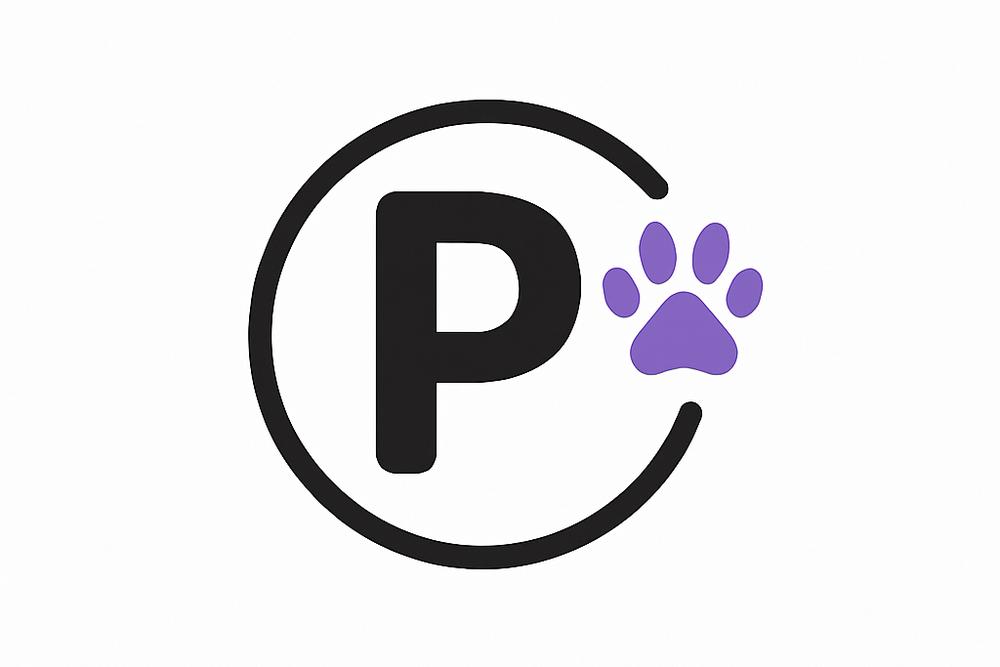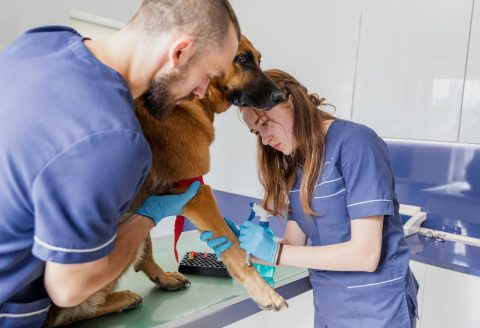Pet owners frequently encounter mysterious sounds emanating from their dog’s belly, ranging from soft rumbles to loud, concerning gurgles. These digestive noises can be puzzling, especially when they seem louder or more frequent than usual. While occasional stomach sounds are perfectly normal in dogs, persistent or unusual gurgling may indicate underlying digestive issues that require attention.
Understanding the difference between normal digestive sounds and problematic symptoms helps pet owners respond appropriately to their dog’s needs. Some dogs naturally produce more audible stomach sounds due to their anatomy or digestive patterns, while others may develop sudden gurgling due to dietary changes, illness, or other health concerns that warrant veterinary evaluation.
Contents
Common Reasons Behind Canine Stomach Sounds
Digestive noises in dogs stem from various causes, ranging from harmless gas movement to serious medical conditions requiring immediate attention. Identifying the underlying cause often depends on accompanying symptoms and the timing of when these sounds began occurring.
Excessive Gas Production
One of the most frequent causes of audible stomach sounds involves gas buildup within the digestive system. This gas accumulation can result from normal digestion processes, dietary indiscretion, or underlying digestive sensitivities that affect how food breaks down in your dog’s system.
Dogs experiencing gas-related stomach sounds may also display other signs such as frequent flatulence, restlessness, or attempts to relieve discomfort by changing positions. The gurgling typically becomes more noticeable after meals or when your dog has consumed foods that are difficult to digest.
Gas production can increase when dogs eat too quickly, consume unfamiliar foods, or have underlying digestive sensitivities. While usually harmless, persistent gas issues may indicate the need for dietary adjustments or veterinary evaluation to rule out more serious digestive problems.
Dietary Sensitivities and Reactions
Food allergies and intolerances affect many dogs and frequently manifest through digestive symptoms including stomach gurgling. These reactions occur when a dog’s immune system responds negatively to specific ingredients in their diet, leading to inflammation and digestive upset.
Dogs with food sensitivities often experience stomach gurgling alongside other symptoms such as loose stools, changes in stool color or consistency, frequent gas with unpleasant odors, and occasional vomiting episodes. Some dogs may also develop secondary symptoms like skin irritation, ear infections, or excessive scratching.
Identifying specific food triggers requires careful observation and often veterinary guidance to implement elimination diets or specialized testing. Common culprits include beef, chicken, dairy products, wheat, and artificial additives, though any ingredient can potentially cause reactions in sensitive dogs.
Inappropriate Food Consumption
Many dogs have indiscriminate eating habits, consuming items they encounter during walks, in the yard, or around the house. This dietary indiscretion frequently leads to digestive upset and audible stomach sounds as the digestive system works to process inappropriate materials.
Dogs who have eaten something they shouldn’t often display stomach gurgling along with signs of discomfort, changes in appetite, or altered bathroom habits. Fatty, greasy, or spoiled foods commonly cause particularly intense digestive reactions and loud stomach sounds.
Pet owners should monitor dogs with known scavenging tendencies more closely and consider whether recent access to inappropriate foods might explain sudden onset stomach gurgling. Severe cases may require veterinary intervention if the consumed items pose obstruction risks or toxic concerns.
Parasitic Infections
Internal parasites commonly affect dogs and frequently cause digestive symptoms including stomach gurgling. These organisms disrupt normal digestive processes and can cause inflammation throughout the gastrointestinal tract, leading to various uncomfortable symptoms.
Dogs with parasitic infections may experience stomach gurgling combined with changes in bowel movements, including diarrhea that may contain mucus or blood, unusually dark or tarry stools, and visible worms or unusual particles in waste. Additional signs often include decreased appetite, unexplained weight loss, and reduced energy levels.
Parasitic infections require professional diagnosis through stool testing and prescription treatments. Early detection and treatment typically lead to successful resolution, while delayed treatment can result in more serious health complications and prolonged discomfort for affected dogs.
Viral or Bacterial Illnesses
Various infectious diseases can affect a dog’s digestive system, causing inflammation and unusual stomach sounds. These illnesses often develop suddenly and may be accompanied by additional symptoms that indicate systemic involvement beyond simple digestive upset.
Dogs suffering from digestive infections typically display stomach gurgling along with vomiting, diarrhea, fever, decreased appetite, and general lethargy. The severity of symptoms can vary significantly depending on the specific pathogen involved and the dog’s overall health status.
Infectious digestive illnesses require prompt veterinary attention, as some can progress rapidly and pose serious health risks. Professional diagnosis helps identify the specific cause and ensures appropriate treatment to prevent complications and promote faster recovery.
Intestinal Blockages
Intestinal obstructions represent serious medical emergencies that can cause intense stomach gurgling as the digestive system attempts to move contents past the blockage. These obstructions typically result from dogs swallowing large objects, bones, or other indigestible materials that become lodged in the intestinal tract.
Dogs with intestinal blockages often display stomach gurgling accompanied by repeated vomiting, inability to keep food or water down, straining to defecate without producing waste, signs of abdominal pain, and progressive weakness. The gurgling may become more intense as the obstruction worsens.
Intestinal blockages require immediate emergency veterinary care, as they can quickly become life-threatening. Surgical removal of the obstruction is often necessary, making rapid diagnosis and treatment crucial for positive outcomes.
Chronic Digestive Disorders
Some dogs develop ongoing digestive conditions that cause persistent stomach gurgling and other gastrointestinal symptoms. These disorders may be inherited, develop with age, or result from previous illness or injury affecting the digestive system.
Chronic digestive disorders often cause regular stomach gurgling along with recurring symptoms such as inconsistent stool quality, periodic appetite changes, and intermittent digestive upset. These conditions typically require ongoing management rather than simple treatment.
Dogs with chronic digestive issues benefit from specialized diets, regular veterinary monitoring, and sometimes long-term medications to manage symptoms and maintain digestive health. Early diagnosis and appropriate management can significantly improve quality of life for affected dogs.
Recognizing Emergency Situations
Certain combinations of symptoms accompanying stomach gurgling indicate the need for immediate veterinary attention. These warning signs suggest serious underlying conditions that can rapidly worsen without proper medical intervention.
Emergency symptoms include bloody vomit or diarrhea, which may indicate internal bleeding or severe inflammation. Mucus in vomit or waste can signal serious digestive tract irritation, while black or tarry stools may indicate upper digestive tract bleeding requiring urgent care.
Persistent vomiting or diarrhea lasting more than 48 hours poses dehydration risks and suggests serious underlying problems. Similarly, visible worms in waste, inability to defecate despite straining, and signs of extreme weakness or collapse all warrant immediate professional evaluation.

Professional Veterinary Assessment
Veterinary examination provides the most reliable method for diagnosing the cause of persistent stomach gurgling in dogs. Professional assessment includes physical examination, discussion of symptoms and timing, and potentially diagnostic testing to identify specific problems.
Veterinarians can perform fecal examinations to detect parasites, blood tests to assess overall health and check for infections, and imaging studies if obstruction or other structural problems are suspected. These diagnostic tools help pinpoint exact causes and guide appropriate treatment decisions.
Early veterinary consultation often leads to better outcomes and can prevent minor issues from developing into serious complications. Regular health check-ups also help identify potential digestive issues before they cause obvious symptoms or discomfort.
Treatment and Management Strategies
Treatment approaches for stomach gurgling vary significantly depending on the underlying cause, ranging from simple dietary adjustments to complex medical interventions. Some cases respond well to conservative management, while others require intensive treatment protocols.
Mild cases related to dietary indiscretion may resolve with temporary fasting followed by bland diet introduction. Food allergies typically require elimination diets and specialized foods, while infections need appropriate antimicrobial treatments.
More serious conditions like intestinal obstructions or severe infections often require hospitalization, intravenous fluid support, and possibly surgical intervention. The key to successful treatment lies in accurate diagnosis and prompt initiation of appropriate therapy.
Preventive Care Measures
While not all causes of stomach gurgling can be prevented, certain measures can reduce the risk of digestive problems in dogs. Maintaining consistent feeding schedules with high-quality food helps promote digestive health and reduces the likelihood of upset.
Preventing access to inappropriate foods, garbage, and potential foreign objects reduces the risk of dietary indiscretion and obstruction. Regular parasite prevention through veterinary-recommended products helps prevent parasitic infections that can cause digestive symptoms.
Gradual dietary transitions when changing foods, maintaining current vaccinations to prevent infectious diseases, and scheduling regular veterinary check-ups all contribute to better digestive health. Pet owners should also learn to recognize their dog’s normal digestive sounds and patterns to better identify when changes occur that might indicate developing problems.







